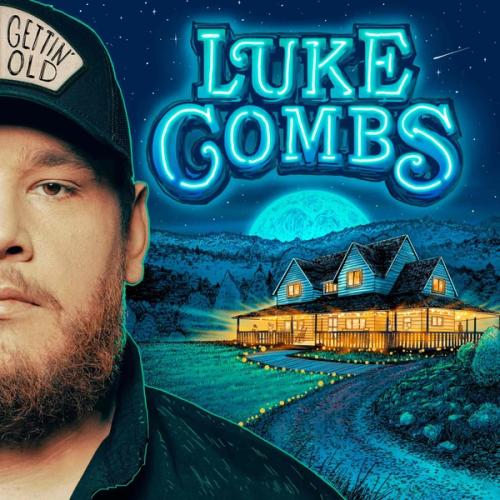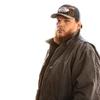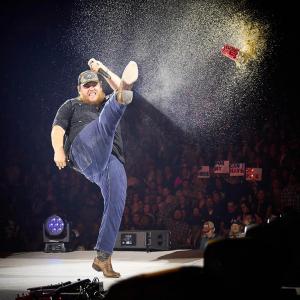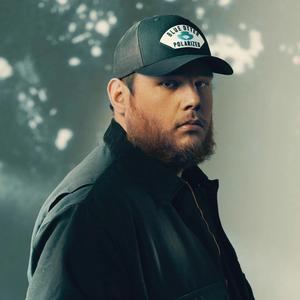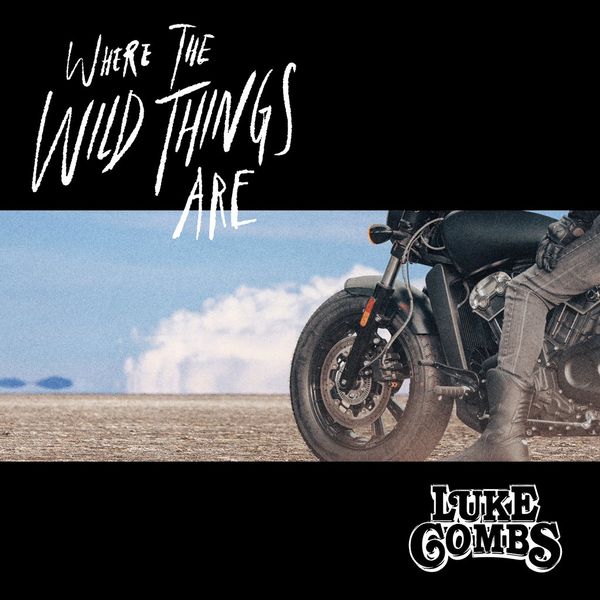




Link copied

Everything you need to know about the free spirited single from one of country's best tunesmiths.
Luke Combs - ‘Where the Wild Things Are’
Label: River House Artists / Columbia Nashville
Release Date: March 24th 2023
Album: Gettin' Old
Producers: Luke Combs, Chip Matthews & Jonathan Singleton
Songwriters: Randy Montana & Dave Turnbull
Chart Performance:
- No. 1 on Mediabase Country
- No. 6 on Billboard Country Airplay
The Background:
When it comes to country artists with a proven track record for radio success, Luke Combs is the poster boy.
Starting with his debut single, 'Hurricane', in 2016, the North Carolina native has sent a whopping 17 singles to country radio and, so far, each of them have topped out at No. 1 (and not taken very long to do so).
In early 2023, Combs released the second instalment of his two-part album, Growin' Up & Gettin' Old, and quickly sent its first single to radio. The fan-voted ballad, 'Love You Anyway', shot up the charts in no time – as has become the norm for Combs – clearing the way for the crossover smash, a countrified version of Tracy Chapman's 'Fast Car', to do the same.
Gettin' Old has been one of the most successful records of Combs' career, notching the No. 4 spot on the all-genre Billboard 200 and No. 2 on Billboard's Top Country Albums. The record, which nabbed Combs a nomination for Album of the Year at the 2023 CMA Awards, has spawned three singles thus far, including its newest tune, 'Where the Wild Things Are'.
Told from the perspective of a young man whose free-spirited brother ditches their home town to move out West, the song is a rather atypical story song from Combs. However, the award-winning entertainer also proves that he's not afraid to take a risk with this track, evident in its shocking twist ending... but more on that in a bit.
'Where the Wild Things Are' is different from any other song Combs shipped to radio, but given his previous successes, it was unsurprising when this fan-favorite hit No. 1 in February.
The Sound:
With several other options on Gettin' Old that could be considered more radio friendly, 'Where the Wild Things Are' serves as a unique single choice for Combs.
Noted as a revered songwriter in country music, Combs traditionally pulls on his own experiences when it comes to his music. 'Where the Wild Things Are', though fitting seamlessly into his vast arsenal of hit songs, is unique to Combs' catalogue mostly because he actually didn't have a hand in writing it.
The mid-tempo outlaw ode was co-written by Dave Turnbull and frequent Combs collaborator, Randy Montana, and had been floating around the Nashville writing community for a few years. It was previously on hold for country rocker Eric Church before Combs got his hands on it and brought it to life.
Inspired by the idea of the Wild West and recalling James Dean's rebellious 1950s America, the song chronicles the story of a younger sibling paying tribute to his older brother, who headed out West on his hotrod, and the many adventures he had as he shed the skin of his home town and took on a new life "out where the wild things are".
However, by the end of its four-minute runtime, the song explains that the older brother ultimately passed away in a tragic motorcycle accident, making it one of those songs that's hard to forget.
Helmed by Chip Matthews, Combs and his longtime producer, Jonathan Singleton, the song's production is incredibly effective in selling the emotions buried in its lyrics. Throughout, the instrumentation is mostly sparse with a simple drumbeat carrying it most of the way as a steady piano riff and light acoustic guitar take us through the verses.
Rather than taking on a more typical structure (verse, chorus, verse, chorus, bridge), 'Where the Wild Things Are' hones in on the verses to tell its story, not really providing a tried and true chorus that's repeated several times before the song's end.
As we reach the stanzas most closely resembling a chorus, the production swells and intensifies as the full band comes in around Luke Combs' powerful howling vocals. Going back to the verses, though, everything dies down once again as Combs continues to regale us with the chapters to this evocative story.
The Meaning:
"My big brother rode an Indian Scout
It was black like his jacket
American Spirit hangin' outta his mouth
Just like our daddy
He kicked started that bike one night and broke mama's heart
He pointed that headlight west
Out where the wild things are"
The song opens with our narrator telling us a little about his older brother, who he deeply admired.
Combs sings about his brother's black Indian Scout motorcycle, fit with a black leather jacket and iconic American Spirit cigarette hanging out of his mouth. This was a signature look of teenage Americans in the 1950s, which will be a more meaningful reference in a few stanzas.
The narrative continues by explaining that one day the older brother packed up and decided to head out West where he could feel the warm breeze of freedom hitting his cheeks... even if it meant breaking his mother's heart in the process.
"He'd call me up every couple of weeks
From South California
Talk about the desert and the Joshua Tree
And his pretty girl stories
And how he bought an Airstream trailer and a J-45 guitar
Said, 'Little brother, you'd love it out here
Out where the wild things are'"
Flashing forward a few years, Combs tells us how his brother would always call him up after a few weeks to share all of the crazy places he'd been and adventures he's had since he arrived to the promised land of the Golden Coast.
From riding through the desert and the picturesque Joshua Tree National Park, to his stories of one night stands and loves that could've been, the older brother tells him that he's also bought a trailer to set down his roots.
After inviting his little brother out for a visit to see what's in the water out West, the older man promises that he'll love it once he gets out there.
"Oh, it's hearts on fire and crazy dreams
Oh, the nights ignite like gasoline
And light up those streets that never sleep when the sky goes dark
Out where the wild things are"
As we get to what can most closely be called a chorus, Combs sings about the freedom that can be found out West, with young dreamers' hearts more or less on fire to see if their wildest dreams can become a reality in the place where it feels like anything is possible.
The prose is light and simple, with the production choices and Combs' infectious husky howl mostly carrying this section of the song.
Most notably, there are moments here where Combs transcends the limits of his own dependability.
"I called my brother from the back of that plane
The second I made it
We started drinkin' on the strip in LA
And then it got crazy
Ended up at a house in the hills with some Hollywood stars
Kissin' on a blonde in a backyard pool
Out where the wild things are"
Continuing on, we find that the younger brother has taken the older sibling up on his offer and has come out to California to see what it's all about.
The pair start the trip by tipping back a few on the LA strip, but soon things get a little out of hand for the youngster. Before he knows it, he's drunk in the Hollywood hills with a bunch of A-listers, going to first base with a blonde in the backyard.
"Oh, yeah
Couple iron horse rebels
Wild as the devil
I knew I had to move back east
Said goodbye to my brother
At the end of that summer
But I knew he'd never leave"
After a little while in the land of opportunity, our narrator decides that he's not cut out for life in the Wild West. He finds that he and his brother might share the same blood, but that doesn't mean they're cut from the same cloth.
Heading back east at the close of the summer, Combs sings that he knows that, regardless of what comes or what he says, his brother won't ever leave this new home he's made, so he has to say goodbye.
"Oh, it's hearts on fire and crazy dreams
Oh, where the nights ignite like gasoline
And oh, them Indian Scouts, man, they're built for speed
And oh, they said he hit that guardrail at half past three
Lit up those streets that never sleep when the sky goes dark
We buried him out in the wind 'neath the West Coast stars
Out where the wild things are"
As we arrive at the last stanza of the song, this section repeats the beginning lines of the first would-be-chorus, but this time with some key line changes that carry the song's heavy ending.
Combs sings about how those old Indian Scout motorcycles are built for speed. In the next breath, the narrator delivers the ultimate gut punch: his brother died in a motorcycle crash after hitting the guardrail.
An interesting detail in the song is that the brother allegedly dies at 3:30, slightly mirroring the fateful accident that killed young 1950s film star James Dean on September 30, 1955.
There are some differences between the two events, though, such as Dean's accident involving a speeding Porsche 550 Spyder colliding with a vehicle on Highway 331 in California at 5:45pm. The burgeoning star had received a speeding ticket just two hours and fifteen minutes prior, at 3:30pm, which is the same time mentioned in 'Where the Wild Things Are'.
Though the parallels between these two stories are interesting, none of the song's collaborators have explicitly said that the song is inspired by or about James Dean.
The song closes with the younger brother laying his free spirited brother to rest under the same "West Coast stars" that he'd found so much solace and adventure in.
What has Luke Combs said about ‘Where the Wild Things Are’?
Shortly after the release of Gettin' Old in March 2023, Luke Combs and his crew of collaborators sat down to discuss the stories behind the record's songs track by track.
When chatting about 'Where the Wild Things Are' the group noted that the song had been floating around Nashville for a few years before Combs picked it up to record it.
Dan Isbell, one of Combs' frequent songwriting partners, wondered if it was because people were worried about singing a song that pertains to death, but Ray Fulcher, another songwriting pal, explained that 'Where the Wild Things Are' is an extremely difficult song to sing, with Combs agreeing.
The song does a marvelous job of displaying Combs' often hidden vocal range. However, because of its high-flying notes, Combs explained that recording it was a bit of a struggle.
"When that song was going around, at least when I heard it, that was five years ago," he noted. "At that time, nobody was cutting story songs at all really, outside of Eric Church. I would argue that it's a really tough song to sing and figure out how to do live. We struggled with it even in the studio."
Combs continued, "I remember when [I was still recording with Scott Moffatt], I said, 'I can't do this because I won't be able to [sing it live]'. He said, 'We can't dumb down the record. We have to make it as good as we can and you'll figure it out.' I always remembered that."
For the full lyrics to Luke Combs' ‘Where the Wild Things Are’, see below:
My big brother rode an Indian Scout
It was black like his jacket
American Spirit hangin' outta his mouth
Just like our daddy
He kicked started that bike one night and broke mama's heart
He pointed that headlight west
Out where the wild things are
He'd call me up every couple of weeks
From South California
Talk about the desert and the Joshua Tree
And his pretty girl stories
And how he bought an Airstream trailer and a J-45 guitar
Said, "Little brother, you'd love it out here
Out where the wild things are"
Oh, it's hearts on fire and crazy dreams
Oh, the nights ignite like gasoline
And light up those streets that never sleep when the sky goes dark
Out where the wild things are
I called my brother from the back of that plane
The second I made it
We started drinkin' on the strip in LA
And then it got crazy
Ended up at a house in the hills with some Hollywood stars
Kissin' on a blonde in a backyard pool
Out where the wild things are
Oh, yeah
Couple iron horse rebels
Wild as the devil
I knew I had to move back east
Said goodbye to my brother
At the end of that summer
But I knew he'd never leave
Oh, it's hearts on fire and crazy dreams
Oh, where the nights ignite like gasoline
And oh, them Indian Scouts, man, they're built for speed
And oh, they said he hit that guardrail at half past three
Lit up those streets that never sleep when the sky goes dark
We buried him out in the wind 'neath the West Coast stars
Out where the wild things are
Out where the wild things are
For more on Luke Combs, see below:

